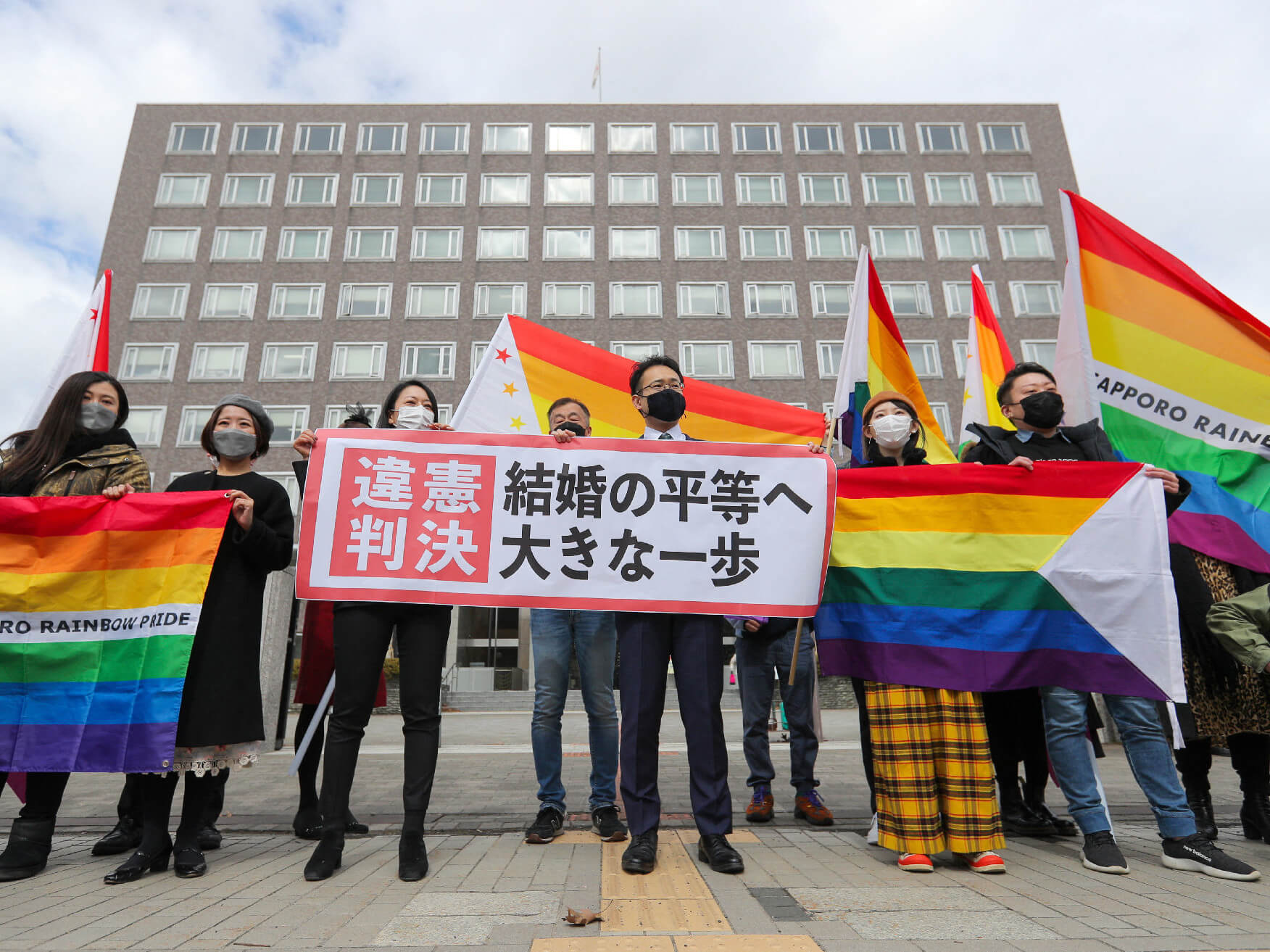In a blow to LGBTQ rights, a Japanese court ruled on Monday that the country’s ban on same-sex marriage is constitutional, rejecting arguments made by three same-sex couples that formed part of a series of lawsuits filed by activists seeking marriage equality.
“From the perspective of individual dignity, it can be said that it is necessary to realise the benefits of same-sex couples being publicly recognised through official recognition,” the district court in Osaka said. However, it went on to add that the country’s present failure to recognise such unions is not considered a violation of the constitution. Additionally, the court also rejected the plaintiffs’ demand for ¥1 million ($7,404.53) in damages for each couple.
Last year’s ruling by the Sapporo District Court, which held that Japan’s marriage ban was unconstitutional, offered hope of progress on this issue, but today’s verdict is a crushing blow to same-sex couples who will feel they are back to square one.https://t.co/LXit95kasS
— Amnesty International (@amnesty) June 20, 2022
Following the verdict, plaintiff Machi Sakata expressed her disappointment with the country’s legal system, saying she “couldn’t believe the ruling.” “I actually wonder if the legal system in this country is really working. I think there’s the possibility this ruling may really corner us,” the activist said. Sakata married her partner, a United States (US) citizen, in the US state of Oregon and the two are expecting a baby in August. “Nothing can replace (marriage). I feel nothing but resentment. It’s like they’re saying, ‘We don’t treat you equally but that’s OK, right?’,” she added.
Similarly, Akiyoshi Miwa, the lawyer representing the plaintiffs, also said he was “shocked” by the court’s lack of willingness to intervene in the matter that has captured Japanese media attention in recent years. “It means the judge is saying the court doesn’t have to actively get involved in human rights issues,” Miwa said.
In the Japanese constitution, marriage is defined as being based on “the mutual consent of both sexes.” Based on this, the Osaka court argued that the constitution recognises marriage as legal only between opposite genders and that not enough debate had taken place on the topic in Japanese society to rule in favour of the topic. However, an opinion poll carried out by the local government in Tokyo late last year found that around 70% of citizens are in favour of same-sex marriage.
The court also ruled that same-sex partners could receive legal benefits if a framework similar to marriage between heterosexual couples was created. In this regard, Miwa said that they had emphasised that they “wanted same-sex couples to have access to the same things as regular couples” and that they would appeal against the court’s decision in a higher court.
Japan is taking a step towards inclusivity for Tokyo’s LGBTQIA+ community as the Tokyo government is set to issue same-sex partnership certificates.
— Inquirer (@inquirerdotnet) June 17, 2022
READ: https://t.co/hfGcm5QeeM pic.twitter.com/3UeG58AOAR
Although Japanese law is perceived as being relatively liberal by Asian standards, it continues to uphold conservative attitudes towards homosexuality. Under Tokoyo’s current laws, same-sex couples are prohibited from legally marrying, inheriting each other’s assets, including property that they may have shared, and also have no parental rights over each other’s children. At present, same-sex couples can only be recognised as “partners.”
The latest verdict comes after a district court in northern Sapporo ruled the opposite last year. The 2021 ruling said that the government’s failure to recognise same-sex marriages was in violation of the constitution’s provision guaranteeing equality under the law. Considered to be a landmark ruling for Japan’s LGBTQ community, the ruling was hailed as a major victory by campaigners, who said it would help double down pressure on lawmakers to legally accept same-sex relationships.
Prime Minister Fumio Kishida has said in the past that the legalities of the issue need to be carefully considered. However, his ruling Liberal Democratic Party has not yet hinted at plans to review the matter or propose new legislation. Legalising same-sex marriage in the country would have far-reaching social as well as economic implications. Activists further argue that the move would help attract foreign firms to the world’s third-largest economy.

